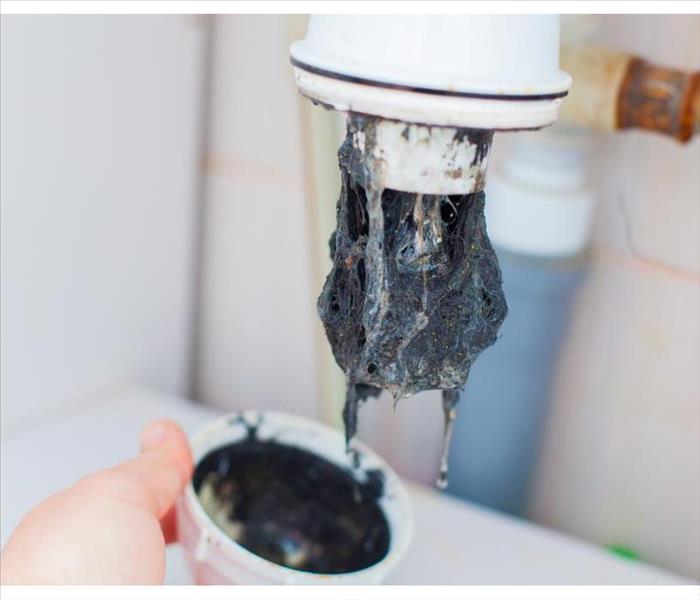How To Prevent Clogs in Old Drain Pipes
2/11/2021 (Permalink)
An old rental building in Woodstock, GA comes with plenty of charm. It may even be cheaper than an ultra-modern premise is. However, a property that was erected decades ago may also have a lot of problems. Clogged pipes, for instance, are particularly common in older structures. That is because these buildings usually feature polybutylene pipes that wear down over time.
Clogs are not just minor inconveniences, either. A major backup could cause a flood that necessitates water damage restoration services. You thus need to perform extra maintenance on your pipes to keep them functioning properly.
Enzyme Treatments
A clog can occur in a sink or in the main plumbing line. To prevent both types of blockages, follow the below steps:
1. Run Hot Water
Enzymes do their best work in warm temperatures. You should thus run the water in the sink until the temperature increases.
2. Make and Pour Enzymes
Enzymes are essentially powdered bacteria that destroy soap scum and other debris in the drain. Add water to liven up the dry enzymes and then pour them down the drain.
3. Turn on Water
Let the enzymes sit in the polybutylene pipes overnight. Then pour boiling water into the drain to flush away the remaining gunk.
Repeat this process in each sink at least once per month. You should also clear your main lines by flushing one cup of enzymes down the toilet. Do this four days in a row during each season.
Preventing Clogs
Besides using enzymes, you can also prevent clogs by keeping the pipes clear of debris. This means installing a lint catcher in any laundry room and making sure your tenants keep the drains clear of food and hair.
Tree roots are common sources of clogs, as well. You may want to chop down troublesome trees or use root killers in your toilets.
Polybutylene pipes in older properties can wear down or clog easily. Limit mainline blockages and use regular enzyme treatments to prevent severe water damage in your building.




 24/7 Emergency Service
24/7 Emergency Service
